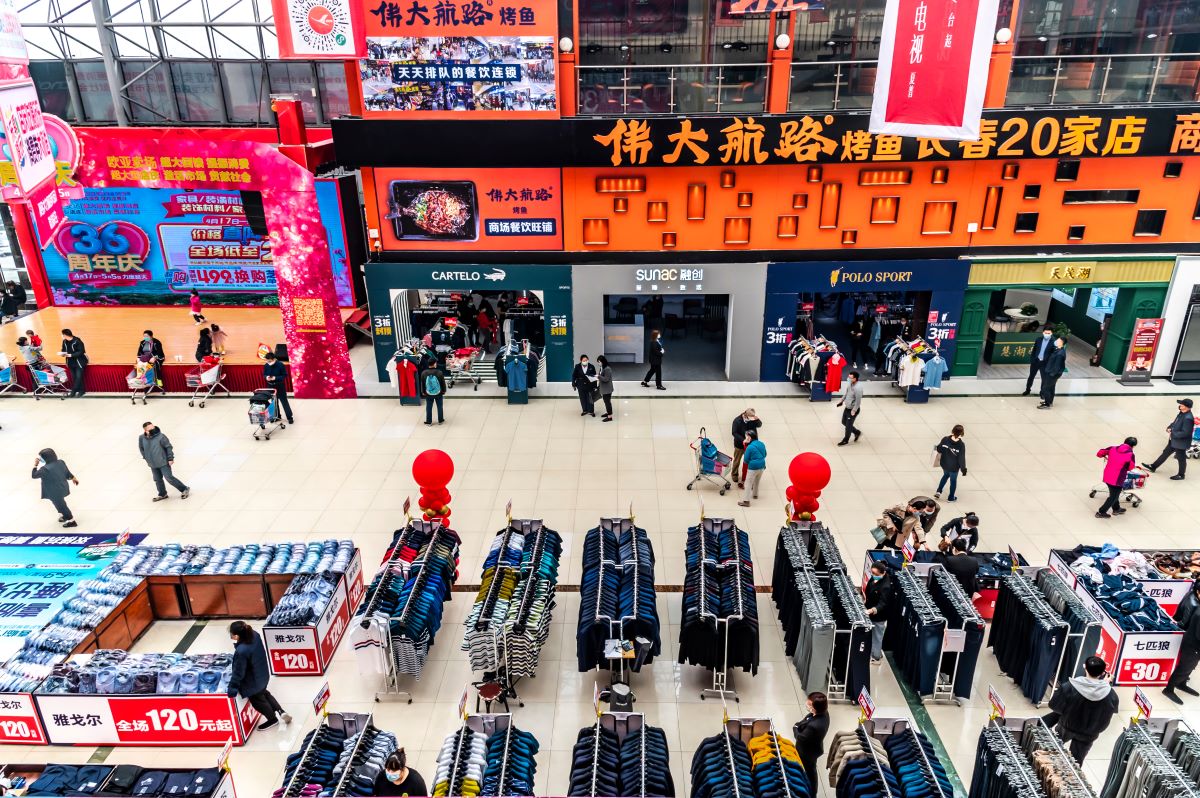China’s CPI (consumer price index) has taken a sharp downward turn, registering its first annual decline in over two years in July. This dip in consumer prices raises questions about the factors influencing the nation’s economic landscape and its potential implications on the country’s ongoing post-pandemic recovery efforts.
As per government data, the country’s CPI dropped by 0.3% year-on-year in July 2023, signifying the first decrease since February 2021. This fall in consumer prices was contrary to economists’ expectations of a 0.4% decline, reflecting a departure from the previous trend of stable or rising consumer prices.
Meanwhile, consumer prices in urban areas fell by 0.2 % year-on-year, while in rural areas, it was slashed by 0.6%. This decline was particularly prominent in food prices, which experienced a 1.7% drop year-on-year. This reduction was attributed to lower pork prices, marking a reversal from a 15-month upward trend.
Non-food prices, however, remained relatively stable, with some categories such as clothing, housing, health, and education experiencing either modest increases or remaining flat. The decrease in transportation prices also contributed to the overall decline in consumer prices.
“China’s weak demand follow-through in Q2 can be attributed to its relatively contained demand-side stimulus during Covid, years of regulatory tightening, and an ongoing housing correction,” said Oxford Economics.
“In response, authorities are shying away from cookie-cutter big stimulus and opting for prudent, targeted policy easing – a positive development in our view. An improvement in underlying demand conditions could also stem disinflationary pressures,” the global economic researcher added.
Drop in China’s CPI accompanied by a decrease in producer prices
The decline observed in China’s CPI was not an isolated occurrence. The Producer Price Index (PPI), which provides insight into factory prices, also demonstrated a downturn of 4.4% year-on-year last month. Although this indicated an improvement from the preceding month’s 5.4% reduction, the year-on-year drop in PPI during July 2023 proved to be less favourable than the 4.1% projection put forth by experts.
Simultaneously, during the same timeframe, the purchase prices associated with industrial producers underwent a decline of 6.1% year-on-year and 0.5% month-on-month. When considering the average spanning from January to July 2023, the ex-factory price of industrial producers experienced a decrease of 3.2% compared to the same period in the prior year. Additionally, the purchasing price of industrial producers exhibited a decline of 3.5% during the same period.
“Both CPI and PPI are in deflation territory…The economic momentum continues to weaken due to lacklustre domestic demand,” said Zhiwei Zhang, President and Chief Economist of Pinpoint Asset Management, in a note.
Despite these concerns, the National Bureau of Statistics of China put forth a projection that the decline in CPI was temporary. The statistics agency anticipates a gradual recovery as the economy rebounds and the influence of the elevated baseline from the previous year began to wane. In terms of the government’s economic targets, a consumer inflation goal of approximately 3% has been set for 2023, representing an increase from the 2% figure recorded in 2022.
Furthermore, China’s exports experienced a sharp decline of 14.5% in July, the steepest drop in three years, while imports also declined by 12.4% in USD terms during the same period. These figures were worse than analysts’ predictions, highlighting the challenges the Chinese economy is facing both domestically and abroad.


 Australia
Australia China
China India
India Indonesia
Indonesia Japan
Japan Malaysia
Malaysia Philippines
Philippines Singapore
Singapore South Korea
South Korea Taiwan
Taiwan Thailand
Thailand Vietnam
Vietnam







